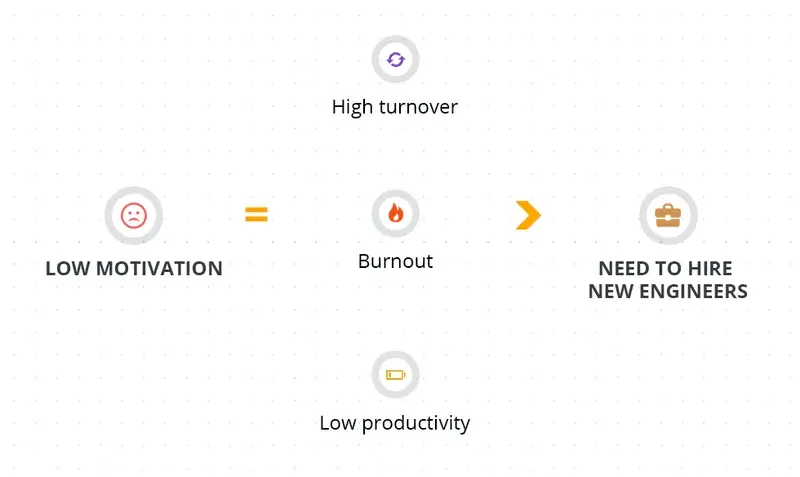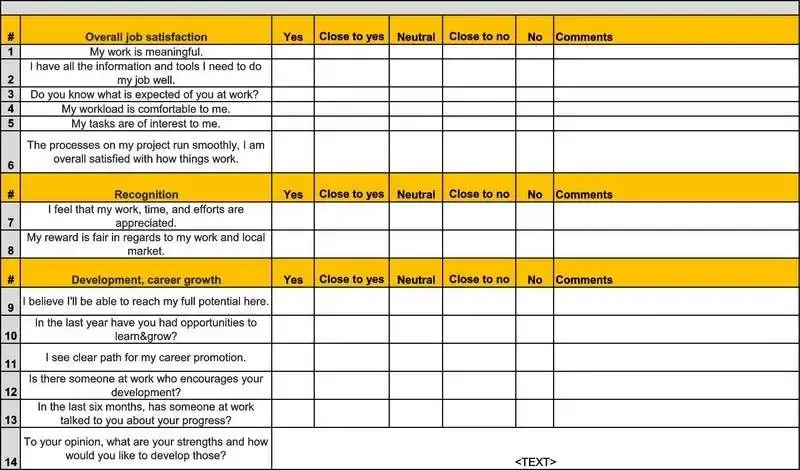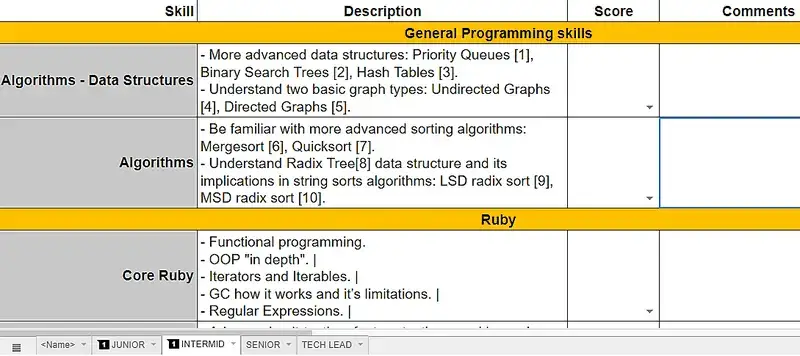How to motivate your remote developers
Most of the time, there are solid economic reasons for hiring remote developers: just comparing the average salaries of IT specialists in the United States and other locations like Asia or Eastern Europe will speak for itself. But be it a disseminated group of freelancers or a full-fledged dedicated development team, one question may trouble you
– how do I motivate them?
Why would you want to motivate them, in the first place? Isn’t e-mail communication and regular paychecks enough? However, it has been proven that working remotely may make your offshore development team quickly become disengaged and lose focus. You can avoid turnover, burnout and low productivity, and, subsequently, the need to hire new programmers, if you approach motivation seriously.

Managing, motivating and retaining remote developers has a number of specifics. ‘Motivating’ involves figuring out incentives that will work for each of your team members individually – some may be motivated by career growth and recognition, some will ask for flexible schedule or other perks and benefits, while some will only be motivated by tangible and substantial financial rewards.
If you work in the same office, it’s pretty easy to keep your hand on the pulse and see what’s best for your team. Their needs and values, their attitudes and ever-changing moods are there in front of you as you cross eyes with them in the hall, drink your latte at coffee breaks, talk during team meetings or gossip during corporate hangouts and getaways.
Yet, if you are looking for ways to motivate remote development teams, here are some tips to help you out:
1. Focus on Productivity First
What do you value most in your best in-house team members? They are always on time, they are nice to colleagues, and, of course, are great performers. Most remote IT specialists, however, value independence and flexibility, and will be motivated to achieve more, if you offer it to them. With remote developers you will have to focus on productivity first. Define KPI’s and see how successful your off-premise team members are in meeting them – do they deliver quality products? Are they observing the deadlines? This will require a paradigm shift on your part – it’s not how much time they spend on the task, it’s how well they perform that matters. Instead of micromanaging and counting work hours, allow them to be flexible, but make your goals and objectives a priority and outline them clearly.
Also, it never hurts to ask your employees (remote or local as a matter of fact) what kind of tasks they enjoy the most, delegate more complex and responsible tasks. That way your employees will feel that you trust them, and they will do their best to prove you’ve made the right decision hiring and caring for them.
2. Hold Regular Video Meetings
Regular meetings are excellent means of motivating your in-house teams. With remote development teams it’s pretty much the same – even though there’s nothing like personal contact, you can organize regular skype conference calls to discuss your current tasks and agenda. And remember – VIDEO meetings, not just text chats. I’ve seen several remote teams ruined because their top managers thought it was enough just to text people in Slack or Skype. Trust me, you should SEE and HEAR your people. Most experts recommend checking in on your remote programmers at least once a week, but you may do it more frequently, if you feel this is required. Also, try meeting them in person whenever possible, – there’s nothing like face to face meetings, – we’ll keep stressing it again and again.

3. Make Your Communication More Personal
There’s no better way to ensure motivation of remote developers than to be pals and have some friendly discussion before getting straight ahead to business – some people or cultures may even find it rude if you don’t want to chitchat. Try to find a key to every person. Ask about their family, health, favorite sports and weekend activities. Not only will this bring you closer – but also help you understand their interests and values, let you know what mood they are in today and their current attitude towards work.
Dos and don’ts: Don’t infect your team with your worries or bad mood – this can affect their productivity, motivation and reflect on their performance. Try to stay positive no matter what and encourage the same attitude.
4. Take the Initiative
As said before, it’s pretty easy to see when your office colleagues show signs of low job satisfaction or declining morale – with remote workers such mood swings are less obvious. While working with distant team members, you should take the initiative in clarifying what may be wrong and tackling possible issues. Act as soon as you start suspecting someone’s attitude is starting to deteriorate – or even better: be proactive in preventing possible burnouts or demotivation periods. Schedule regular Performance Appraisal and Job Satisfaction meetings with each of your team members to see if the level of their engagement and satisfaction is still high. It’s recommended to do it every half a year.
Pic.1. Example of a job satisfaction interview form:

5. Offer Recognition and Give Detailed Feedbacks
Not knowing they are valued is one of the main factors that makes employees lose motivation, report low job satisfaction, and even look for employers that will appreciate their work. Be generous in offering genuine recognition for outstanding performance. Be it a LinkedIn recommendation, a letter of appreciation, an article on corporate Intranet or a word of praise, nothing will boost your team’s spirits like knowing their input is noticed and recognized. Also, consider offering career advancement and education to your offshore developers. Not seeing any growth prospects may also act as major put-off.
Create a clear development plan for every employee:

6. Stay Open and Approachable
Mutual trust is a keynote to successful work relationship. Make sure you stay approachable and that your remote employees can turn to you for advice or in case there are any problems. Make sure all information needed from your part is available to them. Ask direct questions like “What is getting in your way?” or “What do you need to deal with this issue?” Listen to their replies and make sure to take measures accordingly. Not taking any action after you hear what’s wrong will demotivate more than not taking interest at all. Open communication lines help build trust and ensure high performance.
7. Hire the Right People
Look for excellent communicators and hire programmers with advanced self-organization and time-management skills. Also, discuss candidates’ values, specific competencies, and try to find the one that matches yours. This, surely, narrows down your choice to very few candidates – not every good professional is a fit for your company and is able to work remotely. Be clear and specific in outlining their job requirements, goals and key objectives so that they would know your expectations and could deliver accordingly.
Motivating your offshore development teams is a challenging task. But in general, treating them as colleagues and a real part of your organization will solve most of the task. People will be loyal to your company and motivated for new achievements.




